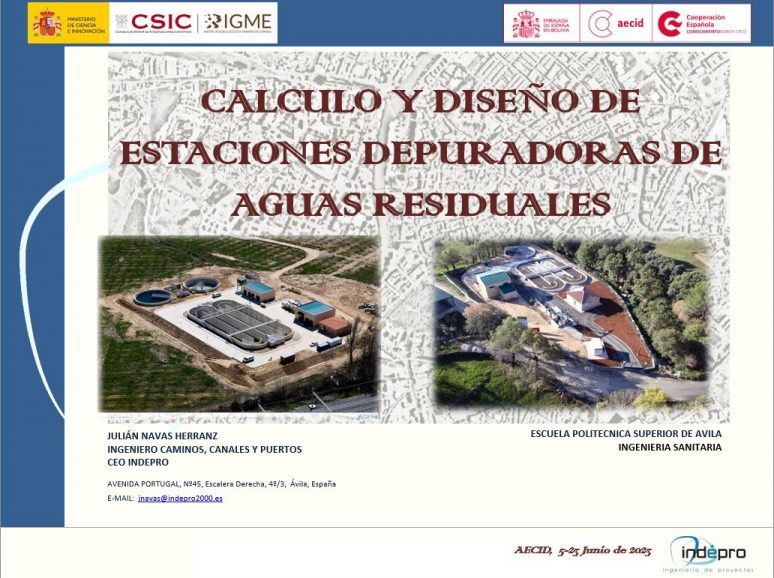Virtual Course “WATER SANITATION AND PURIFICATION”

Virtual Course
Water Sanitation and Purification
Julián Navas, as manager of Indepro and through the Spanish Agency of International Cooperation for Development and the Spanish National Research Council, has participated as a speaker in the virtual course on Water Sanitation and Treatment for Ibero-America, teaching the topics of Calculation and practical design of a WWTP.
The new Plan for the Transfer, Exchange and Management of Knowledge for the Development of Spanish Cooperation in Latin America and the Caribbean, -INTERCOONECTA-, is the commitment of the Spanish Agency of International Cooperation for Development (AECID) to contribute to the institutional strengthening of Latin America and the Caribbean, responding to the needs of the region.
Within the framework of the new Plan, the Spanish Geological and Mining Institute of the Spanish National Research Council (IGME-CSIC) and AECID are organizing the virtual course: “Sanitation and Water Treatment”, which focuses on the basic principles of design and management of sanitation networks and treatment systems, as well as the applicable regulations and legislation.
It will be held on the Intercoonecta Virtual Classroom platform through the Spanish Cooperation Training Center in Santa Cruz de la Sierra, Bolivia, from June 5 to 23, 2023.
The management of wastewater from populations is of vital importance to help maintain rivers in a good ecological status, especially in terms of water quality. It is therefore necessary to collect this water and treat it until it reaches the required quality standards before discharging it back into a public watercourse. This requires knowledge of the basic principles of design and management of sewage networks and treatment systems, as well as the applicable regulations and legislation.
This course will address issues related to sanitation networks, the design and construction of wastewater treatment plants (WWTP), the financing and sustainability of urban water cycle infrastructures, and nature-based solutions. Regarding the latter, the European Commission defines them as “solutions to challenges facing society that are inspired and supported by nature; that are cost-effective and provide environmental, social and economic benefits, and help to increase resilience”


